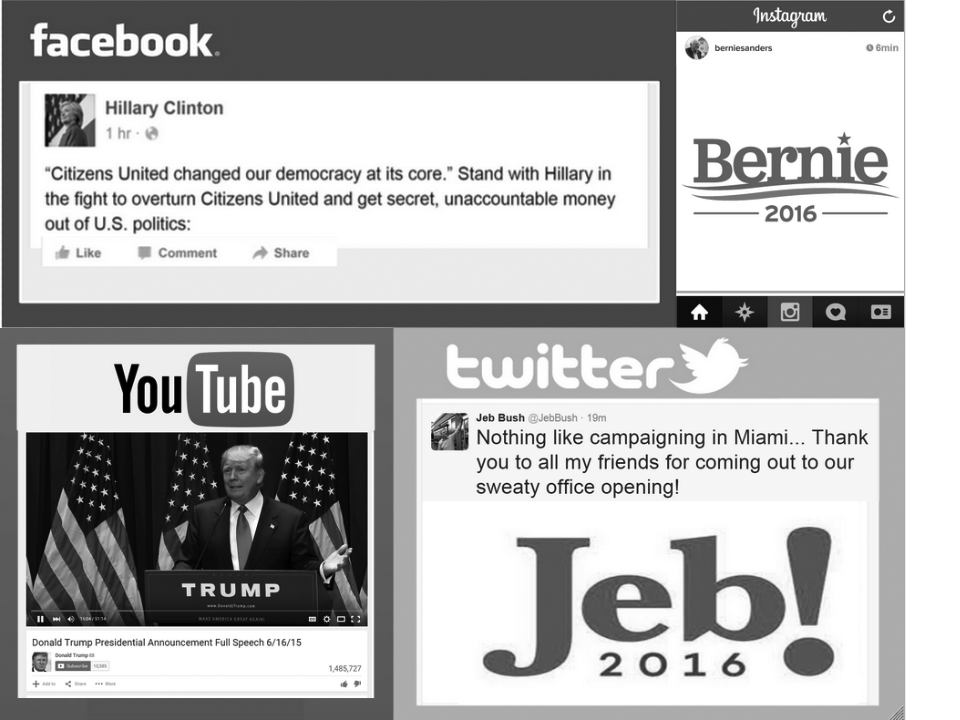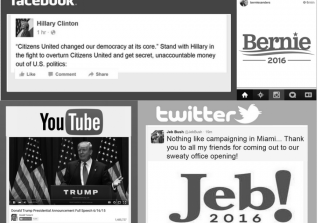
On Aug. 18 at 8:11 a.m., presidential candidate Donald Trump posted a video to Democratic candidate Hillary Clinton’s Facebook. The video that Trump captioned “It does matter!” is a compilation of video segments showing alleged scandals by Clinton while she repeats “It doesn’t matter.” The video, titled “Trump: Make America Great Again,” is a not-so-subtle campaigning ploy that could easily be viewed as blunt propaganda for Trump, but managed to receive an incredible amount of positive support in the comments section. All the 2016 election candidates use social media as a way to advertise and gain support for themselves.

Technology offers an effective way to interact with an audience because, as junior Jason Leung comments, “[the candidates] can better communicate. They don’t have to go through a filter, and they’re able to express their ideas to a wide range of people.” But it is not just the candidates supporting themselves. Many websites, like Reddit, include fan pages that support a certain candidate. “The subreddit for Bernie Sanders has gained like 93,000 readers in just a couple weeks and it’s really catching on,” say Leung.
Some candidates are better at utilizing the media than others. “Essentially, people like Donald Trump use the media really well to their advantage, and sure, maybe all the leftist media hates him, but every time he does something controversial he gets a big media boom. Everyone sees him,” explains Privitera.
On the Democratic side, rumors about Hillary Clinton have spread over social media, creating negative attention for her campaign.
Senior Ryan Swan, who will be eligible to vote in the upcoming election, read about Clinton’s past email scandal when she used a personal email account to conduct government business. He says, “She may be hiding something from the public that she doesn’t want others to know and that just seems suspicious for her campaign.” This is not an isolated event. All the Presidential candidates are subject to negative attention that may be inflated through social media.
As information becomes more accessible, some may question the reliability of political news distributed through social media. Swan explains, “You have to remember that people may lie in order to obtain votes, so you want to be careful with what you’re reading.” He adds, “[Candidates] could easily take advantage of young minds that are uneducated on politics.”
Social media allows political news to be more accessible to a younger audience than it has been in the past. Although new information about the candidates surfaces every day and the election is still a year away, Privitera comments that “The candidates who use social media are more are apt to be well known.”



